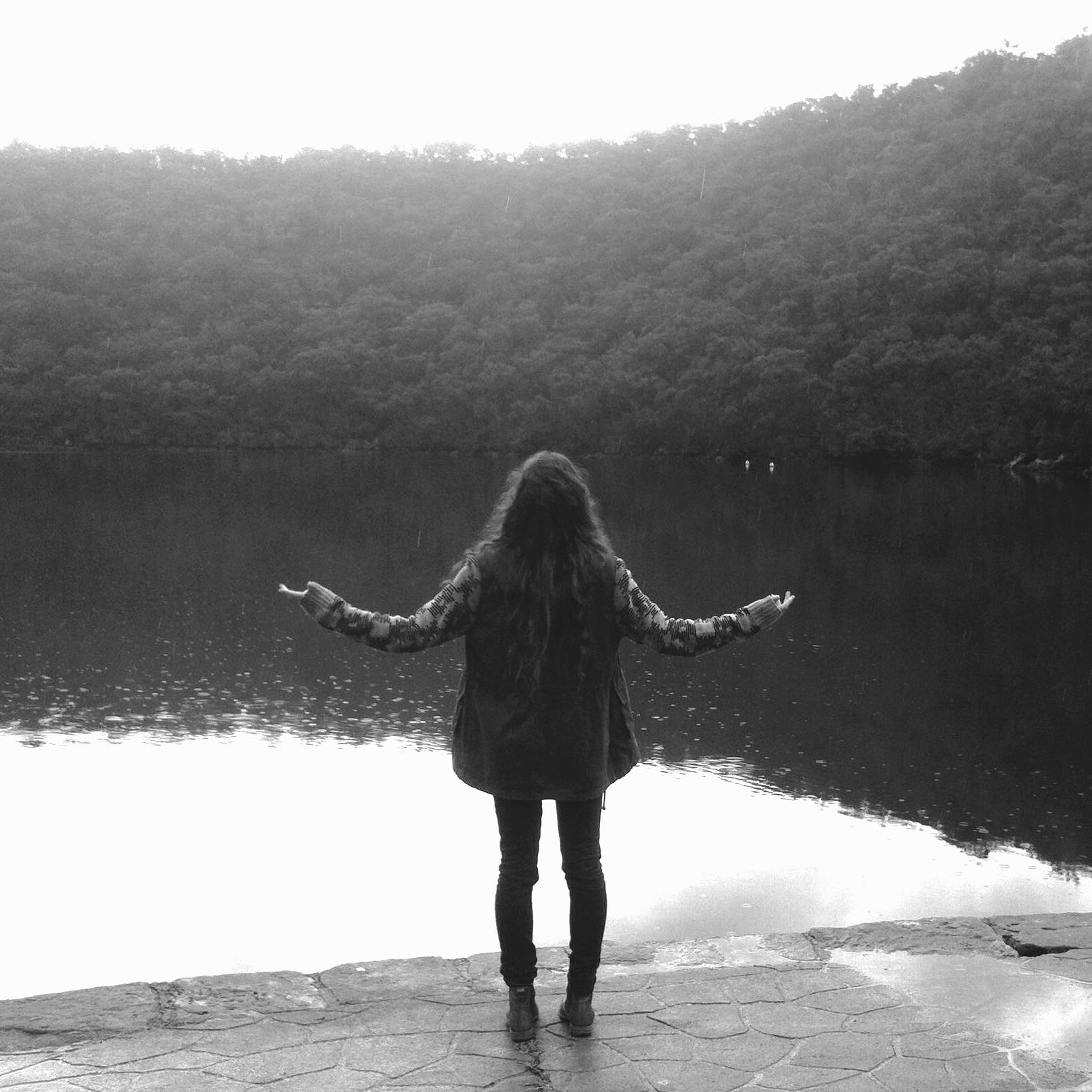There have been films of people ageing backwards and living life in reverse as a mortal.
The Curious Case of Benjamin Button.
There have also been films of people never ageing and living life as though they are immortal.
The Age of Adeline.
What intrigues me about these stories is the underlying question of mortality.
How does mortality impact our experience of time?
Arguably Tolkien provides us with the most complex exploration of this question through the lens of immortality. Tolkien questions whether the cycles of time are linked to a majestic whole, a larger song that gives meaning and purpose to the shapes and forms of life. In the Silmarillion we learn the history of Eldar (the Elves), whose magic is art. In Tolkien vocabulary, magic is the machine, the driving force of his characters or stories. Interestingly, the Elves object is art not power.
The Elves walk the Earth in wonder. The Elves are not motivated by power like Ainur (the Subjects, representative of Humanity). Instead, the Elves immortality invites a greater concern than power and death, as they must wrestle with time and deathlessness.
“In every age there come forth things that are new and have no foretelling, for they do not proceed from the past”.
The desire for the Elves from their Creator was for them to learn of love and be taught to perceive beauty. In the deeps of time, the pursuit of art becomes the pursuit of elusive beauty. Elusive beauty recognises there is purpose beyond beauty itself.
I loved this exploration of mortality caught up in beauty.
There are tensions and questions we may be confronted with in our mortality:
- Do we strive for purpose in the temporal or eternal?
- Do we pursue that which is mortal or immortal?
- Do we create what survives or dies?
- Do we sow what may perish or what is imperishable?

As I considered representations of mortality in film and literature, I noticed a missing representation.
We’ve seen a society that lives on a currency of time.
About Time.
We just haven’t seen someone living backwards through time.
Benjamin Button, for example, ages in reverse but still experiences time in a forwards sequence.
So we have seen mortality in reverse, but not time in reverse in reference to mortality.
In this scenario tomorrow would turn to today and then turn into yesterday.
Of course, the limitations to this speculation is the mechanics of time and mortality.
For the sake of a thought experiment though, let’s suspend belief and explore what would be different.
Living life backwards means taking the one thing in your future that is certain ―death―and letting that inform your journey.
Death is beginning, so you spend your life on an adventure of trying to piece together who you are and what lead you to be who you were. Instead of a birth certificate you’re given a death certificate. The cause of death is something only you know, and your life’s goal is to trace your steps to your birth certificate and await the womb on the other end of life.
To you, backwards is forwards, and while everyone around you is hoping to grow, change and evolve, you’re hoping to discover how you grew, changed and evolved. There may even be a sense of constant dread and despair in this discovery timeline, for even though you live each day like it’s a new day, a part of you would know that it’s not new.
The self you begin life with has already experienced and been shaped by events that are not yet known to you. In the Body Keeps the Score we learn that our bodies hold stories of our pasts, our traumas. If we were to live in reverse, with our bodies under the same biological rules, we would begin with a body full of scars and stories. As a point of reference, mortality in a forwards sequence sees us born without scars and stories. Thus, mortality in a backwards sequences sees us born with them.
Since trauma doesn’t have a timeline, as you get closer to a traumatic experience in your life there would be triggers. Instead of triggers occurring as an after-result, they occur as a foreshadowing of a trauma to come. In a similar vein, you would be born with a degree of in-built hindsight, yet not necessarily with the ability to understand or change your fate, as arguably fate is predetermined with mortality. Instead of living forwards in pursuit of your purpose and calling in life (ignorant of your fate), you live backwards to understand why you ended up in the purpose and calling you did (while being acutely aware of your fate).
In a forwards sequence, the deterioration of memory occurs closer to death. In a backwards sequence, you are born with the failings of memory. In a forwards sequence, your brain locks away information overtime, in short term and long term memory vaults. In a backwards sequence, your brain may only offer a recollection of a moment closer to an event, as clarity comes with proximity.
In simplistic terms, time in reverse in reference to mortality is like a mystery novel. You begin your life with an end, and spend your life tracing back your steps to the beginning of that end. Imagine grabbing a novel and reading from back to front. The novel is already written, the ending already determined, but by reading backwards you pursue an understanding of the resolution, in an attempt to piece together the mystery.
I asked Google for an opinion on this representation of mortality, and was told: “If we lived our lives backwards, we would experience time in reverse, with events occurring in the opposite order. This would likely have profound effects on how we perceive and experience the world around us.”
I agree. If you think of the intellectual and ideological effects, your thoughts would be wired differently in this reverse sequence. Instead of fearing for the future, you would experience constant fear at re-experiencing what your body and mind remember.
Fear may take a different shape and form.
As we see in the Tolkien Elves, when the order and mechanics of mortality are altered, so too are our desires and pursuits altered.
While the Elves embraced time and deathlessness as pursuit of art and beauty, if humanity were to live with time and mortality reversed, the question begs whether we still pursue the same underlying desire for meaning and an understanding of life.

The reality is we do not live in a world where we can reverse engineer our fate or mortality.
Our mortality is the only certainty.
Of course, it is important to explore philosophical and spiritual perspectives.
In the Scriptures we learn a surprising posture of mortality.
We are to be patient in good works, seeking for glory, honour and immortality that leads to eternity (Romans 2:7). So we are to adopt patience as our approach to time, waiting on the unseen to be seen, the mortal to be immortal, and for the temporal to lead to eternal.
We groan and are burdened in this earth, for we know that what is mortal will be swallowed up by life (5:2-4). We suffer the pain and hardship of mortality, the descent to death, knowing that death is not the end, and that mortality is not the marker of our life.
We do not fear the destruction of our earthly dwellings, for we know we have an eternal dwelling from God (2 Corinthians 5:1). So we hope in the work of God’s hands, not the work of human hands. We fear not in destruction, for we know what matters cannot be destroyed.
We know the body sown is perishable and mortal, but body that will rise will be imperishable and immortal (1 Corinthians 15:42). For the perishable must clothe itself with the imperishable, the mortal with immortality (5:53). So we live with a posture of immortality, not mortality. For death is swallowed up in victory (5:54-55). We know that our mortality, our labour, our earthly works are not in vain. We know that death will not lay claim.
We are not to exchange the glory of the immortal God for images made to look like a mortal (Romans 1:23). We are to hold mortality lightly, not glory in it, or worship and revere what is mortal over immortal. When we glory in something, we experience and express great joy as a result of that thing. We glory in our immortal God, because we find joy in the unfading splendour and life he invites us into, as opposed to finding happiness in that which may fade or perish.
We believe that Jesus is the way, the truth and the life (John 14:6). That whoever lives and believes in Him will never die (11:26). That whoever believes shall not perish, but have eternal life (3:16). That anyone who keeps His word will never see death (8:51).
So we adopt a posture of immortality. For eternity is calling. Mortality is a beginning, not an ending.

I hope this blog has been food for thought for you.
We are all acquainted with mortality and death.
Not all of us, however, are equipped with a posture of immortality.
As a follower of the Way, we know that there is a way of life that leads to eternal life.
May we all glory in our immortal God, and respond to this call to eternal life.
Xx


